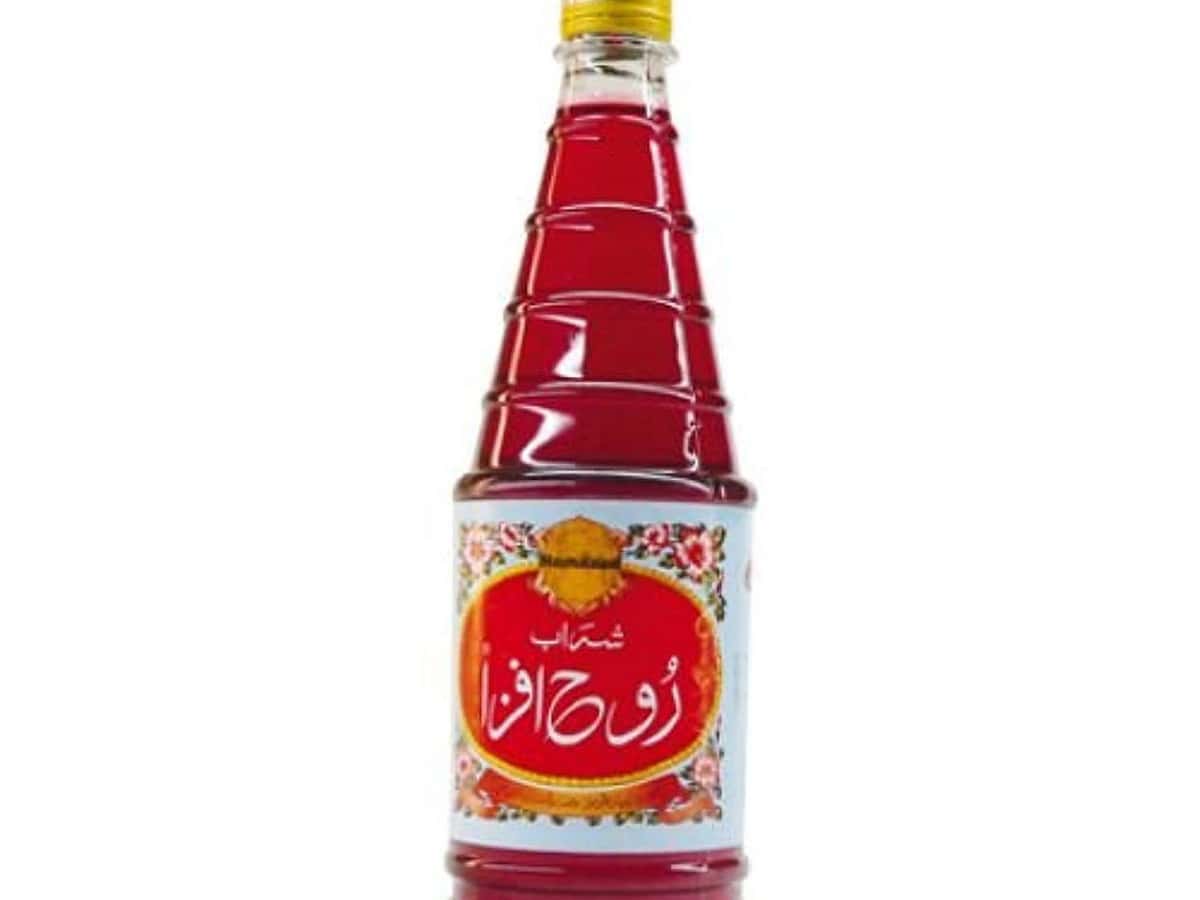Jeddah: For over a century, people in India and Pakistan have relished Rooh Afza, a cooling squash with rose fragrance and crimson shade. The syrup was developed by Hakeem Hafeez Abdul Majeed, a unani or traditional medicine practitioner, in scorching 1907 summers by combing various fruits, medicinal herbs, flowers, and condiments to create a medicinal beverage to hydrate and cool the body.
It’s name, Rooh Afza, in Urdu means “soul rejuvenator”, and it transcended India-Pakistan borders even after partition. It has been the South Asia’s go-to summer beverage for over a century.
Over the years, it became a part of iftar delicacies during Ramzan. People enjoy the drink alongside dates, pakoda, and fruits – preferably watermelon. In the Gulf region, among the Indian diaspora, an iftar is incomplete without Rooh Afza.
Rooh Afza has a deep connection with the holy month of Ramadan and holds significant cultural relevance and nostalgia for generations. During Ramadan, the brand experiences high sales and is often the preferred drink to break the fast with.
The consumption of Rooh Afza during Ramzan in the Gulf region becomes even more popular, both for its cooling effect, as well as its sugar content, which provides a much-needed energy boost after a long day of fasting.
This iconic drink has the same taste in India, Pakistan, and Bangladesh as all of them use a similar formula. It is produced by Hamdard Laboratories India, Hamdard Laboratories (Waqf) Pakistan and Hamdard Laboratories (Waqf) Bangladesh. However, grocery shelves in Saudi Arabia and most of other Gulf countries sell only the one produced in Pakistan.
The Roof Afza from Pakistan was the first to entered the Gulf region where it registered and retained supremacy. “We tried hard but couldn’t be able to succeed as the brand was already registered with others in Saudi Arabia,” a source associated with India’s Rooh Afza told Siasat.com.
After Hakim Hafiz Abdul Majeed died in 1925, his wife Rabia Begum converted the firm into a charitable trust. Hamdard is registered as an irrevocable Islamic trust, known as a Waqf, and under its rules, transfers 85 percent of its profits to the Hamdard National Foundation, an educational charity. The foundation runs Jamia Hamdard in Delhi among other institutions. The deemed university has the distinction of running the only private medical college in Delhi.
After the partition, Hakim Abdul Hameed, the elder son of Hakim Sahab, stayed back in India. But Hakeem Mohammad, the younger one, migrated to Pakistan and opened a separate Hamdard company in Karachi. Later, after the success of the same in 1953, he even started a branch in East Pakistan (now Bangladesh). After the independence of Bangladesh, Mohammad gifted this subsidiary to a local entrepreneur. This Bangladeshi businessman continued running it under the same name Hamdard. Thus, Rooh Afza found its place in Bangladesh as well.
In India, Hamdard has an annual revenue close to Rs 1,000 crore, where approximately Rs 400 crore are fetched from Rooh Afza sales alone. According to reports, the brand sells over 4.5 lakh bottles in a year.
In India, Hamdard Laboratories has two manufacturing plants located in Manesar, Gurgaon and another is in Aurangabad, Maharashtra.
The brand was in news last time as Hamdard India went to court to restrain the sale of Pakistan-made Rooh Afza through e-commerce sites in India.
In Pakistan, Rooh Afza is been titled the ‘drink of nation’ and ‘symbol of Pakistan’. It is being produced in four plants in three major cities in Pakistan.
After the partition, some of the famous brands faded into history, or ended up on the other side of the border. For example, Mahindra and Mohammed (MM) became Mahindra and Mahindra, a famous automobile manufacturer in India whereas it is nowhere in Pakistan as Mohammed entered politics and became the country’s first finance minister.
However, Rooh Afza has successfully found its place in not only the markets but also in the culture and traditions of India and Pakistan and Bangladesh.








